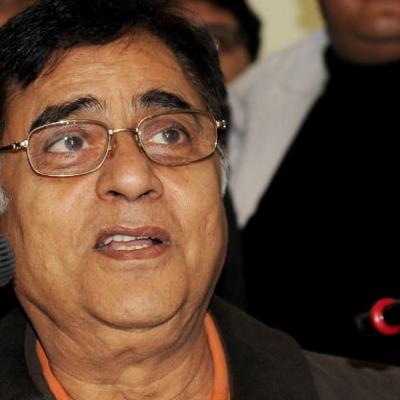Jagjit Singh at a Glance
- Categories: Celebrities, Celebrities > Singers
- Net Worth: $20 Million
- Birthdate: Feb 8, 1941 - Oct 10, 2011 (70 years old)
- Birthplace: Sri Ganganagar
- Gender: Male
- Profession: Singer, Entrepreneur, Musician, Film Score Composer, Music Director, Songwriter, Composer, Activist
- Nationality: India
Jagjit Singh’s Net Worth: A Look at the Ghazal King’s Legacy
The Life and Times of Jagjit Singh
Jagjit Singh, known as the “Ghazal King,” was a celebrated Indian ghazal singer, songwriter, and musician whose melodious voice and heartfelt compositions touched millions. With a net worth estimated at $20 million, Singh not only achieved financial success but also played a pivotal role in popularizing ghazal, a traditional Indian classical art form. Born Jagmohan Singh on February 8, 1941, he passed away on October 10, 2011, leaving behind a rich musical legacy.
Jagjit Singh’s journey to becoming a household name was marked by his exceptional talent and dedication. His ability to connect with audiences through his poignant lyrics and soulful renditions transformed the way ghazals were perceived. Together with his wife, Chitra Singh, also a renowned ghazal singer, Jagjit Singh elevated the genre and brought it to mainstream audiences. Their partnership was a defining feature of their careers, producing some of the most memorable ghazals in Indian music history.
Jagjit Singh’s Musical Journey and Career Highlights
Jagjit Singh’s career spanned over five decades, during which he released over 80 albums, each reflecting his mastery of the ghazal form. His collaboration with his wife, Chitra Singh, was a cornerstone of his success. Their album “Unforgettable,” released in 1977, marked a significant milestone and foreshadowed their future achievements. The couple’s performances were highly sought after, and they performed concerts around the globe, captivating audiences with their harmonious voices and emotive performances.
Beyond his ghazal work, Singh also made significant contributions to Indian cinema and television. He composed music for films like “Prem Geet” (1981), “Arth” and “Saath Saath” (1982), leaving an indelible mark on Bollywood. Furthermore, he created soundtracks for popular TV serials such as “Mirza Ghalib” (1988) and “Kahkashan” (1991), thereby expanding his reach to a wider audience. One of the most unique aspects of his career was his collaboration with former Prime Minister Atal Bihari Vajpayee. Singh composed and recorded songs based on Vajpayee’s poetry, resulting in two notable albums, “Nayi Disha” (1999) and “Samvedna” (2002). This collaboration highlighted the versatility and artistic depth of both individuals.
/**/
Legacy and Influence of Jagjit Singh
Jagjit Singh’s influence on the Indian music industry is undeniable. He revolutionized the ghazal genre, making it accessible to a wider audience and inspiring countless musicians. His unique style, characterized by his deep, resonant voice and emotionally charged performances, has left an enduring mark on the hearts of millions. Singh’s ability to blend traditional ghazal elements with modern instrumentation and arrangements made his music timeless and appealing to diverse listeners.
His collaborations with his wife, Chitra Singh, further solidified his place in music history. Together, they created a body of work that continues to be celebrated and cherished. His songs often explored themes of love, loss, and longing, resonating deeply with the human experience. His music continues to be played across various platforms, and his albums are still widely sought after, demonstrating the lasting appeal and relevance of his contributions to the music world.
Conclusion: The Enduring Impact of Jagjit Singh
Jagjit Singh’s net worth of $20 million reflects his success and the commercial value of his work, but his true legacy lies in his profound impact on Indian music and culture. He not only popularized the ghazal but also enriched the genre with his unique interpretations and collaborations. His music continues to inspire and comfort listeners, and his name remains synonymous with the art of ghazal. The “Ghazal King” will forever be remembered for his contribution to music and his ability to connect with audiences on a deeply emotional level.

